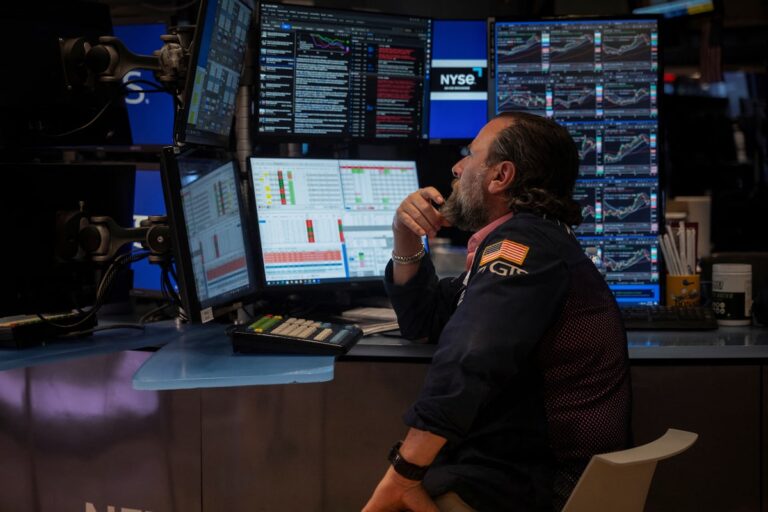Global stocks edged higher and the dollar was pinned near a three-year low on Wednesday as investors pondered the prospect of U.S. interest rate cuts and the scramble for trade deals ahead of President Donald Trump’s July 9 deadline for tariffs.
Mr. Trump said he was not considering extending the deadline for countries to negotiate trade deals with the United States, and cast doubts again that an agreement could be reached with Japan, although he expects a deal with India.
The European Union’s trade chief is also expected to hold negotiations this week in Washington to avert higher U.S. tariffs.
Europe’s STOXX 600 edged up 0.1 per cent, and Germany’s DAX climbed 0.3 per cent in early trading. Across the Atlantic, futures tracking the S&P 500 pointed to a higher open after the benchmark index eased from its record high in the previous session.
MSCI’s broadest index of Asia-Pacific shares outside Japan witnessed a choppy session earlier in the day and was last up 0.1 per cent. However, trade ambiguities weighed on Japanese stocks that lost 0.5 per cent.
“You’ve seen it with other trade negotiations that they take years if you want to do them properly,” said Matthias Scheiber, senior portfolio manager and the head of the multi-asset solutions team at Allspring Global Investments.
“It’s not something you negotiate within a week. I think that’s also what the U.S. is realizing now. If the tariffs get ramped up again and the situation sours, short-term, we can definitely see some volatility.”
Data on Tuesday showed the U.S. labour market remained resilient with a rise in job openings for May, sharpening the focus on the payrolls report due on Thursday as investors try to gauge when the Federal Reserve is likely to cut rates next.
Fed Chair Jerome Powell, under fire from Mr. Trump to cut rates immediately, reiterated that the U.S. central bank plans to “wait and learn more” about the impact of tariffs on inflation before lowering interest rates.
Traders are pricing in about 64 basis points of cuts this year from the Fed, with the odds of a move in July at 21 per cent.
The dollar index, which measures the U.S. currency against six rivals, hovered near its lowest since early 2022 and was last at 96.705. Analysts have said that any signs of labour market weakness could further weigh on the greenback.
Investor focus over the last few days has pivoted to the progress of Mr. Trump’s massive tax-and-spending bill, which is expected to add US$3.3-trillion to the national debt, slash taxes and reduce social safety net programs.
The legislation heads to the House of Representatives for possible final approval after U.S. Senate Republicans passed it by the narrowest of margins.
The bill has stoked fiscal worries, but the reaction was relatively muted in bond markets after it passed the Senate.
Aninda Mitra, head of Asia macro strategy at BNY Investment Institute, said the legislation solidifies a steady deterioration of the fiscal position and the debt trajectory of the U.S. government.
“The near-term impact is mostly in the price, but the uncertainty factor could keep term premia elevated. We don’t think long-term yields will fall back materially in the 6-12 month horizon.”
Uncertainties about the outlook on public finances, trade and interest rates have caused investors to flee U.S. assets and look for alternatives. This was evident in the U.S. dollar’s 10-per-cent loss, its worst first-half performance since the 1970s.
In commodities, spot gold slipped 0.2 per cent to US$3,331 per ounce, after surging 1 per cent in the previous session. The yellow metal is up 27 per cent this year on safe-haven flows.
Reuters
